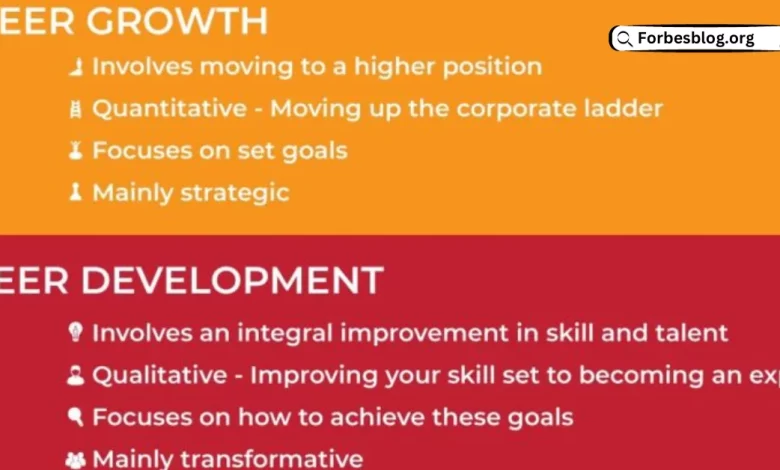What Can I Do To Enhance My Career Progression?

Table of Contents
Set Goals
Employees in some companies are encouraged to fill in career development plans, where you are asked to write down where you would like to be in your career in 2, 5, or 10 years. Such companies then encourage you to look at the skills you already have that can help you achieve this along with the skills that require further development.
Your company might not ask you to work on your career development plan, but it is still good practice to think about the progression of your career in this way. Instead of saying “I’d like to become the deputy director at my company”, you can break down your career progression into chunks that are more easily manageable, where you meet smaller targets along the way, meaning that you can progress steadily towards a more ambitious goal.
You don’t even need to be as structured in your thinking as you would with an official company career development plan. Still, taking the time to think about where you would like to be and what can help you get there is an excellent way to set goals and reach them.
Identify the Opportunities Available to You
In terms of the practical side of what you should do to progress in your career, ensure that you identify the opportunities available to you. This includes looking at the internal vacancies within the organization and seeking out jobs outside the organization. Take a look at NES Fircroft. Using this approach will help you decide whether you can stay in your current role and progress internally, or whether you will have to start looking elsewhere to move up the ladder.
If you realize that you don’t have all the skills required for your desired position, use the job description to identify areas you need to improve on. For instance, do the roles you are considering require client communication experience? Perhaps you can sit in on future meetings with clients or even be copied into emails with them.
You don’t have to be in active communication with the client yourself, but once you see how it is done, you will have a better idea of what client communication involves and this is something you can discuss in future job interviews or applications. It also shows your current employer that you are interested in learning, which will benefit you in the end.
Book Regular Meetings with Your Line Manager
Supporting you is part of the line manager’s job, so don’t be anxious about raising the topic of career progression with them. They not only work closely with you and understand what you are capable of but also may have actually held a similar or the same role as you in the past, which means that they are in a good position to help with your professional development.
If you aren’t already doing so, suggest one-to-one meetings with your manager. These should be held at least once each month, ideally weekly or every two weeks, and a great place to review your progress regularly.
If you have these meetings often, you will hopefully start feeling more confident in discussing exactly what you want from your time at the company, what should be improved upon, and any sensitive subjects that could be having a negative impact on your work.
Take Advantage of Training and Development Opportunities
Companies regularly send their employees on training courses to encourage the learning and development of staff as well as bridging any knowledge gaps in their workforce. Check out your organization’s intranet, ask your line manager, or somebody from HR to find out what training opportunities are available and whether you can sign up.
If you have the opportunity to participate in some training, be sure to accept the offer, unless you have a genuine reason to turn it down. At worst, you will have gained some new insights and, at best, it could improve your chances of getting that promotion.
Take Note of Achievements
Something that can benefit career progression is keeping a record of your achievements. Whether you have presented at an event, received positive feedback on a project, or completed a training course – make a list, save it somewhere you can easily remember and keep adding to it throughout your career.
Having a document detailing your successes will be very important with regards to appraisals and performance reviews, along with instances where you are negotiating a pay rise or promotion, since it won’t be difficult for you to showcase your professional development along with how you are an asset to the organization.
If you have determined that your career progression will happen outside the organization, a list of professional achievements can help save you a great deal of time when you either fill out an application form or write a cover letter.
Step Outside Your Comfort Zone
Take on challenges that make you step outside your area of expertise to show your eagerness to progress in your career. If you aren’t confident in either speaking up or asking questions in meetings, then why not try getting involved in a discussion in a meeting that is coming up?
If someone needs support with something, you can offer to help whether or not it is something that you are confident doing. If it is possible, you could even put yourself forward to lead on a project or provide a creative solution to a problem.
Also check: movierulz ple




